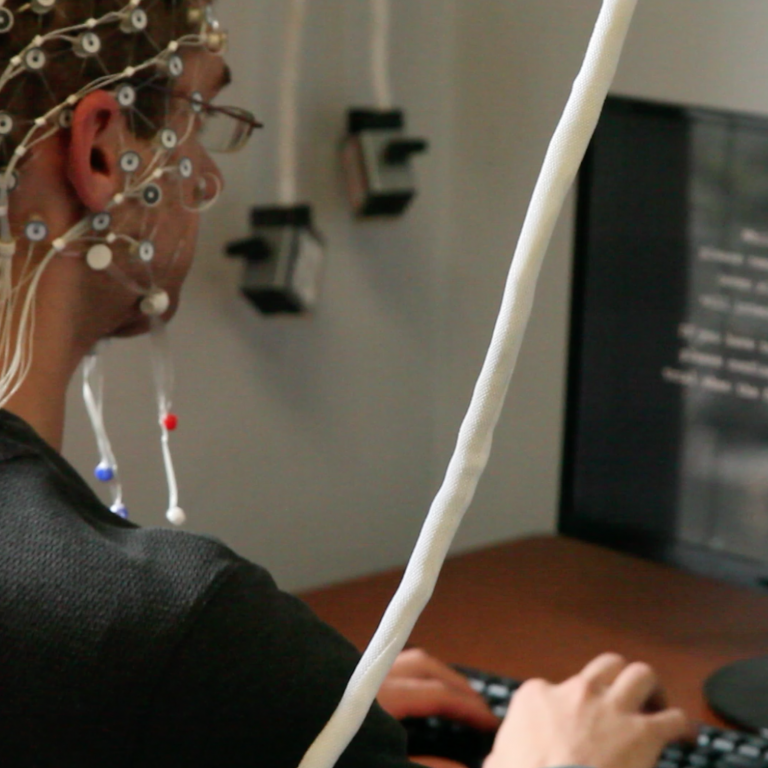About this conversation:
Jason Stornelli is an Associate Professor of Marketing in the College of Business at Oregon State University. His research investigates how people make judgments and decisions about self-regulation, with the aim of helping consumers to act in ways that foster their well-being.
In this interview, we discuss consumer behavior from a wisdom perspective including steps that individuals, businesses, and policymakers can take in optimizing the market toward the path to wise consumerism.
My favorite takeaway from this conversation:
"How do we encourage conversations about wise principles that happen on a level that is accessible, and that's interesting to people?"
Interview transcript:
Jason Stornelli: We're all consumers. And so thinking about the ways in which we manage those choices and how those choices make us feel and how they help us to pursue important goals in our lives, I think is a really worthy thing to further people's well-being. I'm Jason Stornelli, an Associate Professor of Marketing at Oregon State University. Generally, I research self-regulation…So how do people think about their, behaviors, their thoughts, their feelings in the context of consumption?
Jean Matelski Boulware: How does wisdom apply to consumption?
Stornelli: So I think if we think about consumption broadly, it's important for us not just to think about consuming stuff, but also experiences and information and all of those decisions that we make every day, all of us, really have an impact on our happiness and our ability to achieve goals.
And so the more that we can help people to achieve a balance, a balance between short term and long term outcomes or personal outcomes versus those that affect other people, I think the more likely it is that will help individuals to achieve the goals they want to achieve.
Why is balance important? Why can't we just maximize benefits and minimize costs?
I think the balance language is nice for wisdom. Benefits are multifaceted, so some benefits are functional, some benefits are psychological, some are social, and costs are also multifaceted. So we could think about not just money but also time and effort. And to the extent that we can help consumers to optimize this relationship between benefits and costs, I think the more likely it is that they're going to make good choices and be happy with those choices.
Boulware: So how do we get that? How do we get that balance? Do you even know how we...I mean, I don't know if that's even…[laughing]
Stornelli: I mean, I think it's a question of alignment. So there has to be alignment between policy and between options that firms make available in the marketplace and consumer incentives. And the more that we can kind of have this consistent conversation at multiple levels, the more likely it is that we kind of get that alignment.
I think that from a firm perspective, thinking about principles of wisdom can help to form a competitive advantage. Think about a company like Patagonia, for example, which is very oriented toward environmental sustainability. They do a lot of things in their daily work that really help to reinforce that message. For example, they collect used clothes from consumers. Consumers can return them for a credit, and then Patagonia refurbishes them and sells them on their Worn Wear platform. They also have sustainable manufacturing processes. And so when we combine kind of those practices that achieve broader social goals, it also builds relationships with consumers and builds a more credible story for the brand.
Boulware: Well, I should really you know, buy my coats through Patagonia [laughs]
Stornelli: But it's an investment, right? So we have to encourage both consumers and firms and governments to think not just about short term goals, but about the long term. And really what we're trying to do is help people to think more broadly.
Boulware: I started reading your papers. I was thinking of consumerism in terms of like myself and my own choices. And one of your papers actually speaks more to consumerism in terms of the responsibility of companies, as opposed to just being the individual.
Stornelli: It's important for us to have this conversation at multiple levels, cause people can make decisions that work really well for them, but the impact of those decisions might affect other people, might affect society, and also people's choices in many ways are constraints. If I, for example, really want to maximize environmental benefits and I want to buy an electric car or more fuel efficient car in order to do that. I, as an individual consumer, can't just decide, “okay, I'm going to go out and buy a more fuel efficient car” because I'm dependent on what's available in the marketplace. And so to the extent that we can have the conversation both with individuals about wisdom and with organizations like companies and policymakers, government, for example, I think the more likely it is that we're going to be able to optimize people's decisions. So the more levels at which we can have that conversation, then the more likely it is that we're going to be able to optimize people's ability to make choices that help them be.
Boulware: In one of your papers, you cite six dimensions of wise consumerism: responsibility, purpose, flexibility, perspective, reasoning, and sustainability. As with most things, to tackle, something grand may seem cumbersome, but starting with small steps, I think, can sometimes make things seem more feasible. So do businesses have to implement all six dimensions to begin to shift towards wise consumerism? Or is there 1 or 2 that you think might be most salient to start down this path?
Stornelli: Those dimensions come from a Consumer Wisdom Scale that's been constructed by my colleagues, Michael Lukes and David Mick and Kelly Hawes. And you're right, they include things like Responsibility: So how do I plan for, and a lifestyle that I aspire to achieve? Or Flexibility: How do I think about alternative consumption choices; instead of buying something, maybe I choose to rent or borrow it from somebody else. And I think they're we're looking at a constellation of factors. So some people are going to want to move toward, thinking about more flexible consumption choices. Other people are going to prioritize responsibility… And all that's okay. Really, we just want people to start - and companies and governments to start thinking about ways to move people forward on any of those dimensions. And is it optimal that people move forward on all of them? Sure. But I think any movement is fantastic.
Boulware: Taking a step back and then considering what's most important to you, does that just feed into to creating more polarization?
Stornelli: And I think you're right. It's not just about what's important to me. It's what's important to other people, right. And so that's why being exposed to a variety of perspectives, I think, is really helpful. We could also do things like encourage people to reflect on their own ways in which they interact with others. So, for example, something on a social media platform, like an undo button for a post that you've just made where you have a minute to take a second and think about, “Okay, is that something that I really want to say” might be another step toward encouraging wiser behavior.
Boulware: Could you identify a first step for an individual to become a more wise consumer?
Stornelli: Yeah, I mean, I think the first step is going to be different for everybody. I mean, for me, the foundation of wisdom is both: Do you know how to get from point A to point B in terms of pursuing a goal and thinking about what goals should I be pursuing in my life?
Because we can be good at something that maybe we shouldn't be moving toward that type of goal. And so to the extent that people can reflect on both of those pieces, practical wisdom, I think the better there.
Another thing that I think that's helpful, and that comes from the wisdom literature that relates to social media, is this idea of emotional regulation or emotional homeostasis.
How do we keep people on a relatively even keel? Because I think that those negative emotions are what drives a lot of misinformation sharing to people get riled up and think the world needs to know about this, and maybe that thing might be false. And so to the extent that we can help people to reflect -maybe a prompt, for example, that says, are you sure that you want to post this or an undo button that's available on a social media platform- such that people can approach the decision to comment or share content with a more cool head, as opposed to when their emotions are really aflame. That might also help people to act in a wiser manner.
Boulware: How did you get interested in wisdom?
Stornelli: I've been really fortunate to have a lot of people in my life who I think actually are really wise and who really embody these principles in the wisdom literature. And so I didn't get into this field by reading practical philosophy and all this stuff.
Instead, I was really lucky to have conversations. And I think that's really the core of a lot of the work that we're doing in the consumer space. How do we encourage conversations about wise principles that happen on a level that is accessible, and that's interesting to people? And so the more that we can make those conversations happen, I think the better we are.





